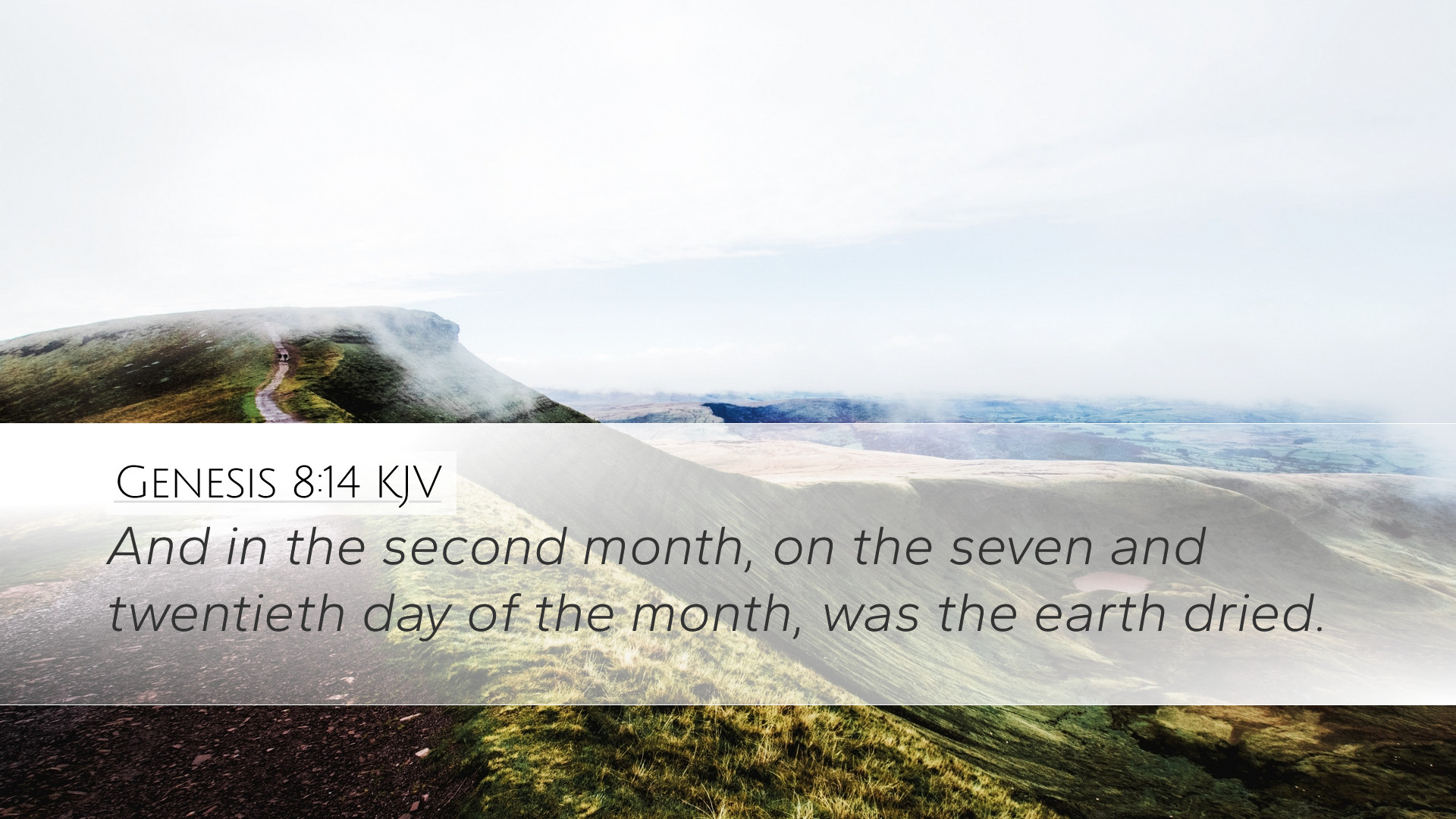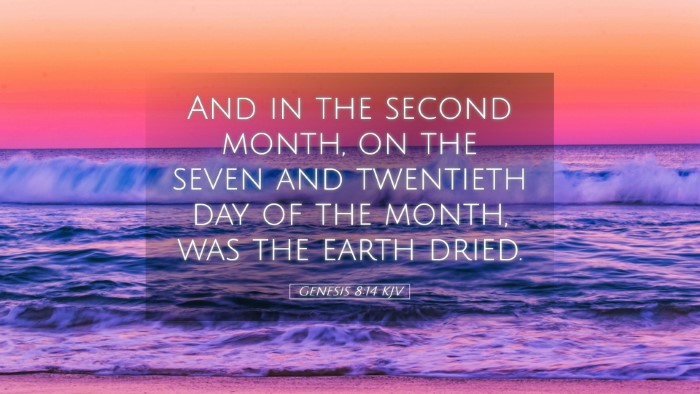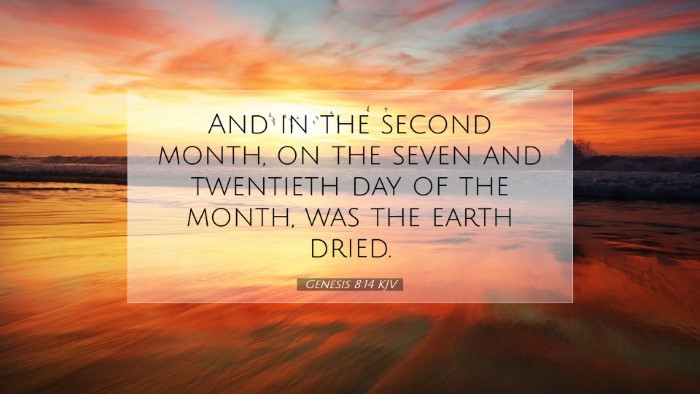Commentary on Genesis 8:14
Genesis 8:14 states: "And in the second month, on the seven and twentieth day of the month, was the earth dried." This verse marks a significant moment in the unfolding narrative of God's covenant with creation following the great flood. The flood, a profound event symbolizing divine judgment, was succeeded by a promise of renewal and restoration.
Contextual Background
The historical and theological context of Genesis 8 is crucial for understanding this verse. After the catastrophic flood that wiped out all land-dwelling life, as recounted in the preceding chapters, Noah and his family had been in the Ark for over a year. In this verse, we see the culmination of God's faithfulness in drying the earth after the cleansing waters had receded.
Theological Insights
This verse can be unpacked through various theological lenses:
- God’s Sovereignty: The drying of the earth underscores the sovereignty of God over creation. It is a clear indication that God not only brought judgment but also restoration.
- Covenant and Promise: The mention of time - "the second month" - emphasizes God's fidelity to His promises. For the Israelites, this would resonate with the assurance that, though judgment may come, restoration follows.
- The Significance of Time: The specific reference to the date signifies the importance of God's timing in the process of renewal and restoration.
Commentatorial Insights
Matthew Henry's Commentary
Henry emphasizes the noteworthy nature of God's faithfulness in fulfilling His promise to Noah. He points out that the drying of the earth speaks to God's mercy, as He meticulously prepared a new beginning for Noah and his descendants. According to Henry, God displayed not only power in judgment but also grace in restoration.
Albert Barnes' Notes
Barnes illustrates the timing and method of God's actions, interpreting the "twenty-seventh day" as a significant marker in God's creation narrative. He emphasizes that God's timing is perfect, and the conclusion of the flood judgment signifies the beginning of a new era. His commentary highlights that Noah’s faith and patience amidst uncertainty were rewarded with new life, serving as a lesson for believers in times of trial.
Adam Clarke's Commentary
Clarke remarks on the historical and cultural implications of the date noted in the verse. He draws attention to the Hebrew calendar and how the timing correlates with agricultural practices, signifying a restoration not just of a physical space but of the ecological balance. Clarke also underscores the necessity of remembering that God’s plans often unfold slowly and require human engagement and patience.
Application for Pastors and Theologians
The verse serves as a profound reminder of the cycles of judgment and grace in the Scriptures. Pastors can draw on this passage to illustrate God’s relentless pursuit of humanity through cycles of correction and redemption. It speaks powerfully to the narrative of hope that underpins the Christian faith - that after devastation, God offers renewal.
- Encouragement in Trials: Believers are reminded that, akin to Noah’s experience, times of hardship are often followed by divine restoration and blessings.
- The Importance of Faithfulness: Just as Noah patiently awaited God’s command to leave the ark, believers are encouraged to remain steadfast in faith and obedience, trusting God's timing in their personal lives.
Conclusion
Genesis 8:14 encapsulates a pivotal moment in salvation history - the promise of new life after God’s judgment. The insights from the notable commentaries of Henry, Barnes, and Clarke converge to illuminate the profound theological truths contained within this succinct verse. For scholars and students, it offers a fertile ground for exploring themes of judgment, mercy, and the renewal of creation.


